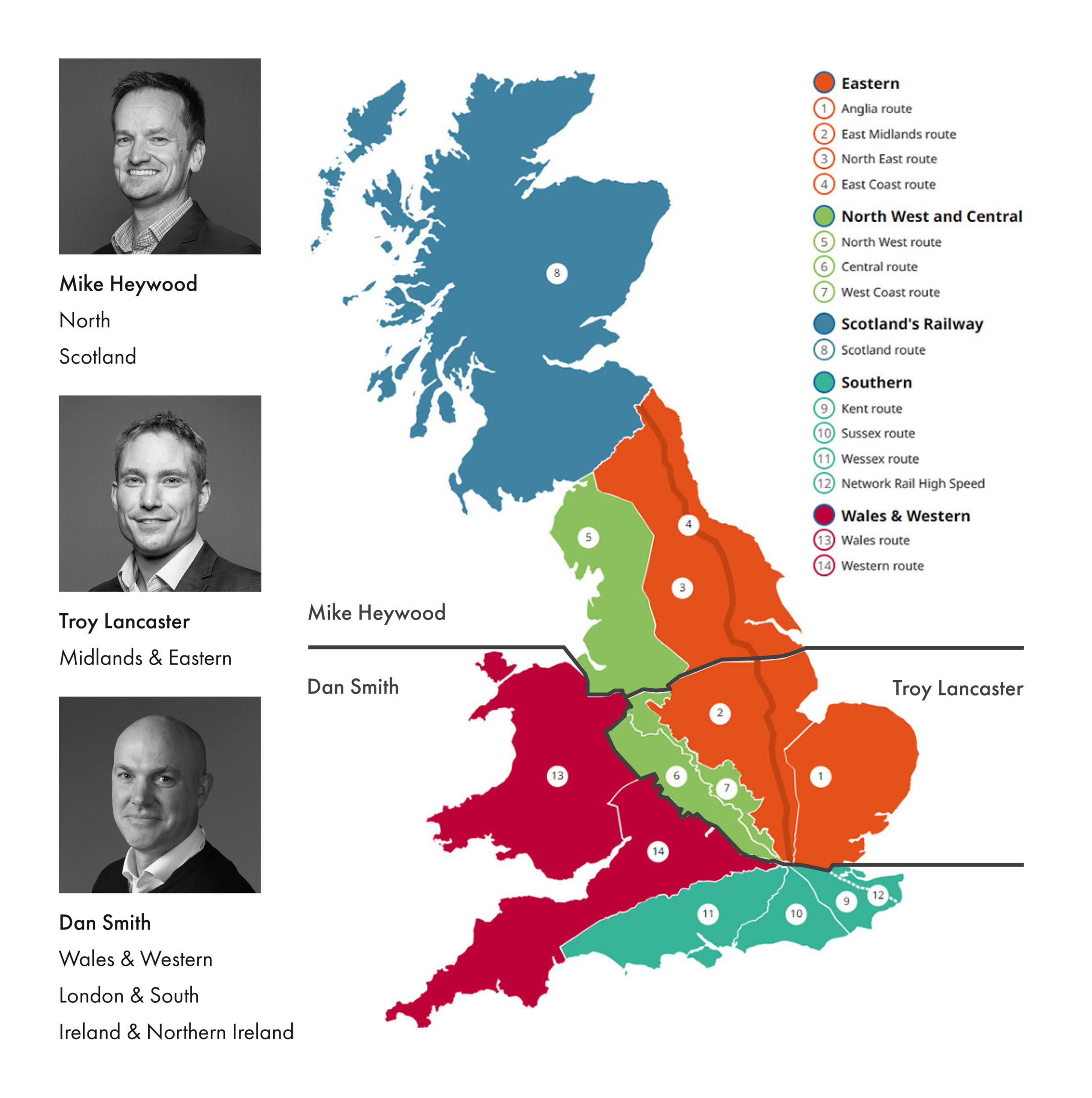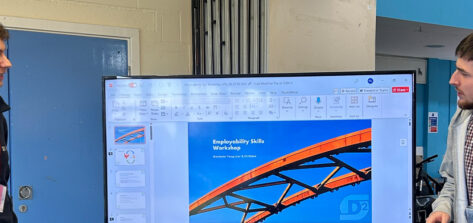Underpinned by our core value of Community, which drives us to collaborate across industry, D2 are supporting the Railway Industry Association (RIA) across three key regions in the UK. Since my appointment as Chair for RIA Wales and Western (W&W) in September 2023 I have been leading the group on their four priorities: Vision; Funding; Innovation; and Skills. This has led to engagement opportunities with local government and stakeholders in the region, including Western Gateway, where I contribute to the Western Gateway Strategic Rail Steering Group.
This industry-wide collaboration has seen us contribute to several Western Gateway initiatives including launch of the Rail 2050 vision at Houses of Parliament and development of the Rail Deal, published in May 2024. The Rail Deal aims to transform an ambitious, but credible Rail Vision 2050 into a tangible investment plan for the next parliamentary government, promising a minimum £17bn return on investment from a circa £11bn investment which requires a rolling programme of electrification in the region to “drive sustainable travel behaviours on a low-carbon rail network” – one of the 5 objectives for the region.

D2’s RIA committee members
Learning from the past
Significant investments in electrification have been made over the last decade, with varied success which was a topic of discussion at a Western Gateway Rail Electrification Workshop, held in partnership with RIA W&W in May 2024.
One of the discussion panels at the Western Gateway Workshop shared key learnings from GWEP. The project was delivered under NR/L2/RSE/02009 where Network Rail appointed a Lead Design Organisation (LDO), a Systems Integrator contract for scheme development with Network Rail managing a single delivery group made up of multiple contractors. The panel reflected that more time and funding in the development phase, in surveys, construction planning, design maturity and mitigating risks would have led to a more deliverable baseline and successful outcome for the project.
The group also discussed the CVL Transformation programme which took a different delivery approach with an integrated client, design, and contractor team for development and delivery, as Transport for Wales (TfW) set up a joint Venture with Amey Infrastructure Wales (AIW). This contractual arrangement enabled pragmatic decision making to keep within the project budget, with sections of the track not electrified in cost prohibitive locations i.e. where there were challenges with clearances to bridges or lineside infrastructure that could not be moved. This promoted the design and use of bi-modal trains, designed to run on the network under electric traction wherever possible, with the use of onboard batteries for the sections that were not electrified. This created efficiencies in construction and project delivery, mitigating costly infrastructure changes.
The panel also discussed the RIA Electrification Cost Challenge report. Key recommendations from the report include establishing a 10-year rolling programme of electrification to decarbonize the rail network in addition to lowering long-term operating costs and supporting investment in people, processes, and plant.
Learning from the Global rail community
D2 are heavily involved in projects with similar objectives, the GO Expansion programme in Canada and the TransPennine Route Upgrade in the UK. On both projects we are working to optimise programme performance through development of access planning strategies that ensure maximum productivity from track access and minimize network disruption to passengers and freight. For a successful rolling programme of electrification in Wales & Western, or indeed any rail network, early identification of project staging and possession access strategy is essential. This approach underpins robust programme management, clear scope, risk, cost visibility, and enables a multidisciplinary delivery strategy.
To support a sustainable electrification programme, the selected contractual delivery model is also crucial. Discussion at the Western Gateway Rail Electrification Workshop advocated the advantages of Alliance delivery models. The Switch and Crossings (S&C) alliances in the UK have demonstrated the effectiveness of collaborative programme management, which is now globally recognised as a successful approach with collaborative contracting models being applied in the Canadian market. The NEC’s inclusion of an Alliance form of contract with NEC4 provides a blueprint that can be applied by clients and contractors alike, supporting collaborative project delivery.
Since the Western Gateway event I have been discussing with colleagues their views as to whether the form of contract on its own will promote innovation in project delivery and secure successful outcomes. Our overwhelming view is that the opportunity for a rolling programme of electrification relies upon industry engagement and the ability of the supply chain to deliver. In a time of competing infrastructure challenges across the UK, we believe client commitment will provide confidence for the supply chain to invest in resource and innovation, and a programmised approach to delivery together with a collaborative contracting model will provide solid foundations for success.
Based on our experience of the global infrastructure market, we urge clients to embed a programmised approach to delivering outcomes, utilising collaborative contractual delivery models. Clients, consultants, and contractors must unite with an open mind, embrace new technologies and working methods, and commit to collaborative contractual relationship.

D2 is delighted to announce it has been named a supplier on Crown Commercial Service’s (CCS) Management Consultancy Framework Four (MCF4) agreement (RM6309). The MCF4 agreement provides UK public sector organisations with access to cost-effective management consultancy from a range…
Read more
The Association for Project Management (APM) Challenge is an annual competition that focuses on developing project management competence for those with less than three years’ experience in the industry, whilst also contributing to the wider community. This provided a great…
Read more
Supporting STEM students at University of Toronto Peter Murphy, Project Manager –based in our Toronto office, is leading our efforts to help provide the skilled workforce needed to deliver Ontario’s ambition. As a University of Toronto (UofT) alumni,…
Read more